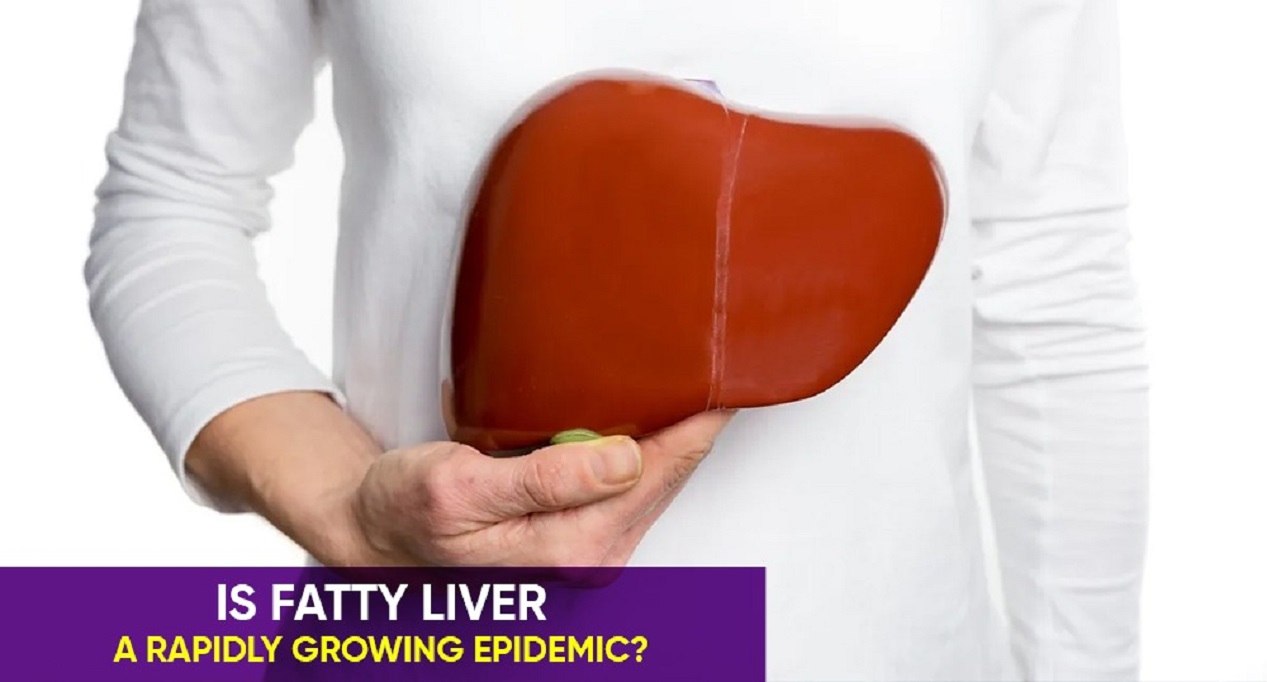Is fatty liver a rapidly growing epidemic?

The rise in fatty liver disease can be attributed to several factors, including the global obesity epidemic, changes in dietary patterns, and a sedentary lifestyle. The increase in the prevalence of obesity, in particular, has been linked to the development of fatty liver disease. When fat accumulates in the liver, it can cause inflammation and damage to the organ, leading to a range of health complications, including liver cirrhosis, liver cancer, and even liver failure.
One of the major risk factors for fatty liver disease is being overweight or obese, as well as having diabetes, high cholesterol, or high triglyceride levels. A diet high in processed foods, sugary drinks, and saturated fats also increase risk. A sedentary lifestyle also increases the likelihood of developing fatty liver disease, as regular physical activity helps to regulate body weight and improve overall health.
Fatty liver disease can often be asymptomatic, which means that a person may not show any signs or symptoms of the disease, but it is still present. But when symptoms do occur, they can include fatigue, abdominal pain, and weight loss, among others.
While there is currently no specific treatment for fatty liver disease, lifestyle changes can be implemented to help manage the condition and prevent it from progressing. This includes maintaining a healthy diet, getting regular exercise, maintaining a healthy weight, and avoiding alcohol. Medications are also available that can help reduce the amount of fat stored in the liver, as well as help reduce inflammation and slow the progression of the disease.
It is also important to note that early detection and intervention can help to prevent the progression of fatty liver disease to more serious stages. This is why regular check-ups and screening tests are important for people at high risk of the disease, such as those who are overweight or obese or have diabetes or other metabolic conditions.
In conclusion, fatty liver disease is a rapidly growing epidemic that has serious health implications. The disease is becoming more and more prevalent, with estimates suggesting that as much as 30% of the global population may be affected. The rise in fatty liver disease is largely attributed to the obesity epidemic, changes in dietary patterns, and a sedentary lifestyle. Lifestyle changes, including maintaining a healthy diet, getting regular exercise, maintaining a healthy weight, and avoiding alcohol, can help to manage the condition and prevent it from progressing. Regular check-ups and screening tests are also important for people at high risk of the disease.
Gallstone Overview
Gallstone Overview Gallstones are small, hard deposits that form in your gallbladder. They’re made up of cholesterol, bile pigments, and calcium, and they can range in size from a grain of sand to a golf ball. Most people with gallstones don’t have any symptoms. But...
Why Do You Require To A Liver Transplant?
Why Do You Require To A Liver Transplant? A liver transplant is a surgical procedure in which a damaged or diseased liver is replaced with a healthy liver from a deceased or living donor. The liver is a vital organ that performs several important functions in the...
How Does Alcohol Damage The Liver?
How Does Alcohol Damage The Liver? Alcohol is a toxic substance that can cause damage to many organs in the body, including the liver. The liver is responsible for filtering toxins and metabolizing drugs, including alcohol, so it bears the brunt of the damage caused...
We're Here Whenever You Need Us
Phone
Open Hours
Morn: 8:30 AM - 09:30 AM (Baner)
Noon: 03 AM - 04:30 PM (PCMC) Even: 6:30 PM - 08:30 PM (Baner)
Baner Address
Sriram Yashadha Building Office No. 2 First Floor, Balewadi Phata Main Baner Road Baner, Pune, Maharashtra 411045
PCMC Address
215, Gera imperium oasis, near Finolex Chauk, Colony, Pimpri-Chinchwad, Maharashtra 411018
Quick Links
Treatment
Make Appointment
About
Services
Contact



